|
Books Should Be Free Loyal Books Free Public Domain Audiobooks & eBook Downloads |
|
|
Books Should Be Free Loyal Books Free Public Domain Audiobooks & eBook Downloads |
|
Economics/Political Economy Books |
|---|
Book type:
Sort by:
View by:
|
By: Orison Swett Marden (1850-1924) | |
|---|---|
 Pushing to the Front
Pushing to the Front
Published in 1894, this is the first book by the renowned inspirational author, Dr. Orison Swett Marden. Pushing to the Front is the product of many years of hard work, and marks a turning point in the life of Dr. Marden. He rewrote it following an accidental fire that brought the five-thousand-plus page manuscript to flames. It went on to become the most popular personal-development book of its time, and is a timeless classic in its genre. Filled with stories of success, triumph and the surmounting of difficulties, it is especially well-targeted at the adolescent or young adult... | |
 How to Succeed
How to Succeed
In this volume, Orison Swett Marden explains the road to success in simple terms for the benefit of anyone, who wishes to follow in his footsteps. Over 100 years after publication, most of these lessons are still valid today. | |
By: Pierre-Joseph Proudhon (1809-1865) | |
|---|---|
 What is Property? An Inquiry into the Principle of Right and of Government
What is Property? An Inquiry into the Principle of Right and of Government
What Is Property?: or, An Inquiry into the Principle of Right and of Government (French: Qu'est-ce que la propriété ? ou Recherche sur le principe du Droit et du Gouvernment) is an influential work of nonfiction on the concept of property and its relation to anarchist philosophy by the French anarchist and mutualist Pierre-Joseph Proudhon, first published in 1840. In the book, Proudhon most famously declared that “property is theft”. Proudhon believed that the common conception of property conflated two distinct components which, once identified, demonstrated the difference between property used to further tyranny and property used to protect liberty... | |
By: Adam Smith (1723-1790) | |
|---|---|
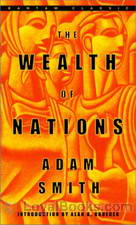 The Wealth of Nations
The Wealth of Nations
Adam Smith’s “The Wealth of Nations” gives an in-depth discussion of different economic principles like the productivity, division of labor and free markets. Although written and published more than 200 years ago, it’s still hailed as one of the most original works in the field of economics and is still used as a reference by many modern economists. “An Inquiry Into the Nature and Causes of the Wealth of Nations” is the complete title of this book and it was first published in 1776, the same year that the American colonies declared their independence from Britain... | |
By: Adelaide Hoodless (1858-1910) | |
|---|---|
 Public School Domestic Science
Public School Domestic Science
| |
By: Agnes C. Laut (1871-1936) | |
|---|---|
 The Canadian Commonwealth
The Canadian Commonwealth
| |
By: Albert Shaw (1857-1947) | |
|---|---|
 The business career in its public relations
The business career in its public relations
| |
By: Alfred R. Calhoun (1844-) | |
|---|---|
 Business Hints for Men and Women
Business Hints for Men and Women
| |
By: Allen Kim Lang (1928-) | |
|---|---|
 The Great Potlatch Riots
The Great Potlatch Riots
| |
By: Andrew Dickson White (1832-1918) | |
|---|---|
 Fiat Money Inflation in France
Fiat Money Inflation in France
| |
By: Arnold Bennett (1867-1931) | |
|---|---|
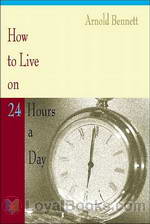 How to Live on Twenty-Four Hours a Day
How to Live on Twenty-Four Hours a Day
This book is a classic piece on self improvement teaching you to live to the fullest. Judging from the title of the book, the reader might expect that the book is a manual on how to manage your time better. Nothing could be further from the truth, this book is a flowery and witty self help book aimed at helping readers improve the quality of their lives, in fact it is one of the firsts of its kind in the world. Bennett describes the twenty four hours in a day as a miracle and that it should be used for the betterment of health, wealth, respect, pleasure and contentment... | |
By: Arthur L. Fowler (1881-) | |
|---|---|
 Fowler's Household Helps Over 300 Useful and Valuable Helps About the Home, Carefully Compiled and Arranged in Convenient Form for Frequent Use
Fowler's Household Helps Over 300 Useful and Valuable Helps About the Home, Carefully Compiled and Arranged in Convenient Form for Frequent Use
| |
By: Austin Potter (1842-1913) | |
|---|---|
 From Wealth to Poverty
From Wealth to Poverty
| |
By: Burton Jesse Hendrick (1870-1949) | |
|---|---|
 The Age of Big Business; a chronicle of the captains of industry
The Age of Big Business; a chronicle of the captains of industry
| |
By: C. Hélène Barker (1868-) | |
|---|---|
 Wanted, a Young Woman to Do Housework Business principles applied to housework
Wanted, a Young Woman to Do Housework Business principles applied to housework
| |
By: Calvin Elliott | |
|---|---|
 Usury A Scriptural, Ethical and Economic View
Usury A Scriptural, Ethical and Economic View
| |
By: Caroline French Benton | |
|---|---|
 A Little Housekeeping Book for a Little Girl Margaret's Saturday Mornings
A Little Housekeeping Book for a Little Girl Margaret's Saturday Mornings
| |
By: Catharine Esther Beecher (1800-1878) | |
|---|---|
 A Treatise on Domestic Economy For the Use of Young Ladies at Home and at School
A Treatise on Domestic Economy For the Use of Young Ladies at Home and at School
| |
By: Clara E. Laughlin (1873-1941) | |
|---|---|
 The Complete Home
The Complete Home
| |
By: Clara Rayleigh (-1900) | |
|---|---|
 The British Association's Visit to Montreal, 1884 : letters
The British Association's Visit to Montreal, 1884 : letters
| |
By: Clément Juglar | |
|---|---|
 A Brief History of Panics and Their Periodical Occurrence in the United States
A Brief History of Panics and Their Periodical Occurrence in the United States
| |
By: Cornelia Stratton Parker (1885-?) | |
|---|---|
 American Idyll: The Life of Carlton H. Parker
American Idyll: The Life of Carlton H. Parker
In a memoir marked by joy, love, and an unbending sense of adventure, Cornelia Stratton Parker reveals the heart of a unique man and their life together. As a member of California's turn-of-the-20th-century Immigration and Housing Commission, Carlton H. Parker came to understand the problems surrounding migrant camps and the labor movement in general. In this volume she recounts his undertakings in that regard and their family life. | |
By: Dan DeQuille (1829-1898) | |
|---|---|
 History of the Comstock Silver Lode and Mines
History of the Comstock Silver Lode and Mines
This is a brief account of the Comstock Lode silver mines, and description of the geographic features of the state of Nevada including the railroads. Silver not only defined Nevada, but influenced the opening of the American West as far as San Francisco. Dan De Quille wrote extensively on the history of mining in the area of Nevada, and published the larger work “The Big Bonanza” assisted by Mark Twain, both of whom were part of the Sagebrush School of writers. - Summary by Larry Wilson | |
By: Daniel Defoe (1661?-1731) | |
|---|---|
 An Essay Upon Projects
An Essay Upon Projects
| |
By: E. Keble (Edward Keble) Chatterton (1878-1944) | |
|---|---|
 King's Cutters and Smugglers 1700-1855
King's Cutters and Smugglers 1700-1855
| |
By: Edward Potts Cheyney (1861-1947) | |
|---|---|
 An Introduction to the Industrial and Social History of England
An Introduction to the Industrial and Social History of England
| |
By: Frances Swain | |
|---|---|
 Food Guide for War Service at Home
Food Guide for War Service at Home
"The long war has brought hunger to Europe; some of her peoples stand constantly face to face with starvation. To meet all this great food need in Europe—and meeting it is an imperative military necessity—we must be very careful and economical in our food use here at home. We must eat less; we must waste nothing; we must equalize the distribution of what food we may retain for ourselves; we must prevent extortion and profiteering which make prices so high that the poor cannot buy the food they actually need; and we must try to produce more food... | |
By: Francis Bacon (1561-1626) | |
|---|---|
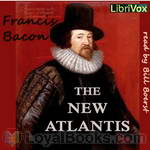 The New Atlantis
The New Atlantis
In 1623, Francis Bacon expressed his aspirations and ideas in New Atlantis. Released in 1627, this was his creation of an ideal land where people were kind, knowledgeable, and civic-minded. Part of this new land was his perfect college, a vision for our modern research universities. Islands he had visited may have served as models for his ideas. | |
By: Francis Wrigley Hirst (1873-1953) | |
|---|---|
 The Paper Moneys of Europe Their Moral and Economic Significance
The Paper Moneys of Europe Their Moral and Economic Significance
| |
By: Frank B. Anderson (1863-1935) | |
|---|---|
 Morals in Trade and Commerce
Morals in Trade and Commerce
| |
By: Franklin Escher (1881-) | |
|---|---|
 Elements of Foreign Exchange A Foreign Exchange Primer
Elements of Foreign Exchange A Foreign Exchange Primer
| |
By: Frederic Bastiat | |
|---|---|
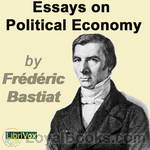 Essays on Political Economy
Essays on Political Economy
Bastiat asserted that the only purpose of government is to defend the right of an individual to life, liberty, and property. From this definition, Bastiat concluded that the law cannot defend life, liberty and property if it promotes socialist policies inherently opposed to these very things. In this way, he says, the law is perverted and turned against the thing it is supposed to defend. | |
By: Frédéric Bastiat | |
|---|---|
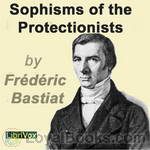 Sophisms of the Protectionists
Sophisms of the Protectionists
"To rob the public, it is necessary to deceive them," Bastiat said and believed. He reasoned, employing repetition to various applications, against fallacious arguments promoting the "Protection" of industries to the detriment of consumers and society. (Introduction by Katie Riley) | |
By: Frederick James Furnivall (1825-1910) | |
|---|---|
 Early English Meals and Manners
Early English Meals and Manners
| |
By: Frederick L. (Frederic Lockwood) Lipman (1866-) | |
|---|---|
 Creating Capital Money-making as an aim in business
Creating Capital Money-making as an aim in business
| |
By: G. A. Bauman | |
|---|---|
 Plain Facts
Plain Facts
| |
By: Gail Hamilton (1833-1896) | |
|---|---|
 Battle of the Books
Battle of the Books
"When, in the course of human events, it becomes necessary for an author to dissolve the bands which have connected him with his publishers, a decent respect for the opinions of mankind requires that he should declare the causes which impel him to the separation." So begins the alleged author's introduction to this work, which chronicles the conflict between a female author and her publisher. This conflict really did happen, although the details in this book are fictitious. For more information about the actual situation, see the author's Wikipedia article. | |
By: George Berkeley (1685-1753) | |
|---|---|
 Querist
Querist
| |
By: George Washington Brooks | |
|---|---|
 The Spirit of 1906
The Spirit of 1906
| |
By: H. G. Wells (1866-1946) | |
|---|---|
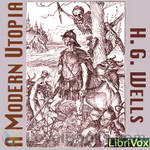 A Modern Utopia
A Modern Utopia
H. G. Wells's proposal for social reform was the formation of a world state, a concept that would increasingly preoccupy him throughout the remainder of his life. One of his most ambitious early attempts at portraying a world state was A Modern Utopia (1905). A Modern Utopia was intended as a hybrid between fiction and 'philosophical discussion'. Like most utopists, he has indicated a series of modifications which in his opinion would increase the aggregate of human happiness. Basically, Wells' idea of a perfect world would be if everyone were able to live a happy life... | |
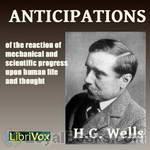 Anticipations
Anticipations
Wells considered this book one of his most important, a natural follow-up to such works as his Man of the Year Million and The Time Machine. His goal was to get people to think and act in new ways. The book starts with a look at how humans get along socially and how they carry out their business ventures. It then discusses how these elements influence others, such as politics, the world of work, and education. H. G. tried to make clear how the current social order was disintegrating without preparing another to take its place. He then traced the roots of democracy, which in its present state he saw as unworkable. Instead, he proposed a new republic. He also critiqued modern warfare. | |
By: Hamilton Holt (1872-1951) | |
|---|---|
 Commercialism and Journalism
Commercialism and Journalism
| |
By: Harold W. (Harold Wellman) Fairbanks (1860-) | |
|---|---|
 Conservation Reader
Conservation Reader
| |
By: Harriet Beecher Stowe (1811-1896) | |
|---|---|
 American Woman's Home
American Woman's Home
| |
By: Hartley Withers (1867-1950) | |
|---|---|
 War-Time Financial Problems
War-Time Financial Problems
| |
By: Helen Campbell (1839-1918) | |
|---|---|
 The Easiest Way in Housekeeping and Cooking Adapted to Domestic Use or Study in Classes
The Easiest Way in Housekeeping and Cooking Adapted to Domestic Use or Study in Classes
| |
By: Henry George Stebbins Noble (1859-) | |
|---|---|
 The New York Stock Exchange in the Crisis of 1914
The New York Stock Exchange in the Crisis of 1914
| |
By: Herbert Feis (1893-1972) | |
|---|---|
 The Settlement of Wage Disputes
The Settlement of Wage Disputes
| |
By: Herbert Kaufman (1878-1947) | |
|---|---|
 The Clock that Had no Hands And Nineteen Other Essays About Advertising
The Clock that Had no Hands And Nineteen Other Essays About Advertising
| |
By: J. P. (James Perry) Johnston (1852-) | |
|---|---|
 Twenty Years of Hus'ling
Twenty Years of Hus'ling
| |
By: Jack London (1876-1916) | |
|---|---|
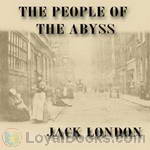 The People of the Abyss
The People of the Abyss
Jack London lived for a time within the grim and grimy world of the East End of London, where half a million people scraped together hardly enough on which to survive. Even if they were able to work, they were paid only enough to allow them a pitiful existence. He grew to know and empathise with these forgotten (or ignored) people as he spoke with them and tasted the workhouse, life on the streets, … and the food, which was cheap, barely nutritious, and foul.He writes about his experiences in... | |
By: Jacques W. (Jacques Wardlaw) Redway (1849-1942) | |
|---|---|
 Commercial Geography A Book for High Schools, Commercial Courses, and Business Colleges
Commercial Geography A Book for High Schools, Commercial Courses, and Business Colleges
| |
By: Jane Addams (1860-1935) | |
|---|---|
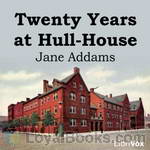 Twenty Years at Hull-House
Twenty Years at Hull-House
Jane Addams was the first American woman to be awarded the Nobel Peace Prize. In a long, complex career, she was a pioneer settlement worker and founder of Hull-House in Chicago, public philosopher (the first American woman in that role), author, and leader in woman suffrage and world peace. She was the most prominent woman of the Progressive Era and helped turn the nation to issues of concern to mothers, such as the needs of children, public health and world peace. She emphasized that women have a special responsibility to clean up their communities and make them better places to live, arguing they needed the vote to be effective... | |
By: Jewett C. (Jewett Castello) Gilson (1844-1926) | |
|---|---|
 Wealth of the World's Waste Places and Oceania
Wealth of the World's Waste Places and Oceania
| |
By: John A. Hobson (1858-1940) | |
|---|---|
 Morals of Economic Internationalism
Morals of Economic Internationalism
| |
By: John Graham Brooks (1846-1938) | |
|---|---|
 The Conflict between Private Monopoly and Good Citizenship
The Conflict between Private Monopoly and Good Citizenship
| |
By: John James Butler (1867-) | |
|---|---|
 Successful Stock Speculation
Successful Stock Speculation
| |